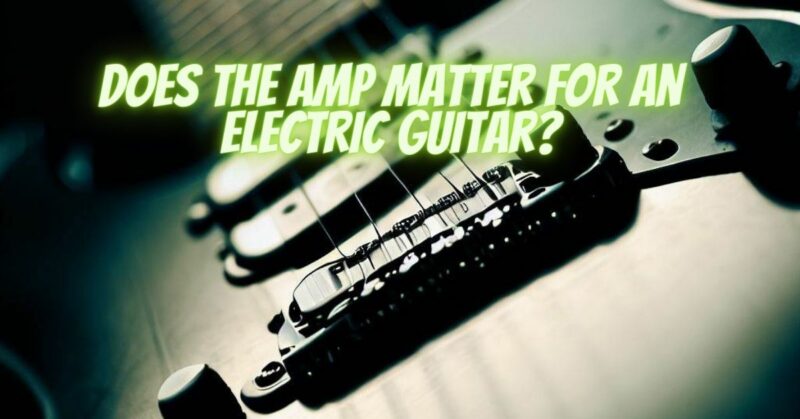In the realm of electric guitars, an unsung hero plays a pivotal role in shaping the sound that captivates audiences and defines genres: the amplifier. Often overlooked amidst the excitement of choosing the right guitar, the question remains: Does the amp matter for an electric guitar? This article delves into the critical role amplifiers play in the world of electric guitars, exploring their impact on tone, dynamics, and musical expression.
The Anatomy of an Electric Guitar Amplifier
An electric guitar amplifier is more than just a means of amplifying sound. It’s a complex system that shapes the sonic characteristics of your instrument, enhancing its unique voice. Understanding the components of an amplifier can shed light on its significance:
- Preamp: The preamp stage controls tonal qualities and dynamics. It shapes the initial characteristics of the sound before it’s sent to the power amp.
- Power Amp: The power amp is responsible for taking the preamp’s signal and amplifying it to a level that drives the speakers. It adds richness and warmth to the sound.
- Tone Controls: Amplifiers often feature tone controls, such as bass, mid, and treble knobs, allowing you to tailor the frequency response to your liking.
- Effects Loop: Many amplifiers come with an effects loop, enabling you to place effects pedals after the preamp stage for greater sonic control.
The Influence of Amplifiers on Tone
- Tonal Palette: Amplifiers are essentially a painter’s palette for guitarists. They determine the color, texture, and character of your sound. Different amplifiers offer distinct tonal profiles, from warm and vintage to sharp and modern.
- Dynamic Response: Amplifiers react to your playing dynamics. A slight change in your picking strength can result in varying levels of distortion, sustain, and timbre. This dynamic interaction enhances expressiveness.
- Overdrive and Distortion: Amplifiers play a crucial role in shaping overdrive and distortion, which are vital for rock, blues, and metal genres. The quality and intensity of these effects largely depend on the amp’s design.
- Speaker Characteristics: The choice of speakers within the amplifier further contributes to tone. Speakers can emphasize certain frequencies and affect the overall clarity and projection of your sound.
Matching Amps to Genres and Preferences
- Genre Compatibility: Different amplifier types cater to specific genres. For instance, vintage tube amps are favored for blues and classic rock, while high-gain amps are essential for metal.
- Personal Expression: Amplifiers become an extension of your musical personality. The right amp can empower you to communicate emotions and stories through your instrument.
- Performance Dynamics: In live performances, amplifiers play a critical role in projecting your sound to the audience. Factors like wattage and speaker configuration affect how well your sound cuts through.
In the world of electric guitars, the amplifier is not just an accessory; it’s a partner in creativity. It significantly shapes your sound, amplifies your musical expression, and enhances the richness of your playing. The choice of amplifier depends on your musical style, tonal preferences, and the emotions you aim to convey through your guitar.
So, does the amp matter for an electric guitar? Absolutely. It’s the conduit through which your sonic dreams become reality, and it’s the powerhouse that allows you to leave an indelible mark on the musical landscape. Whether you’re seeking vintage warmth, modern precision, or explosive distortion, the amplifier is the magic behind the music that moves souls and captivates audiences.


